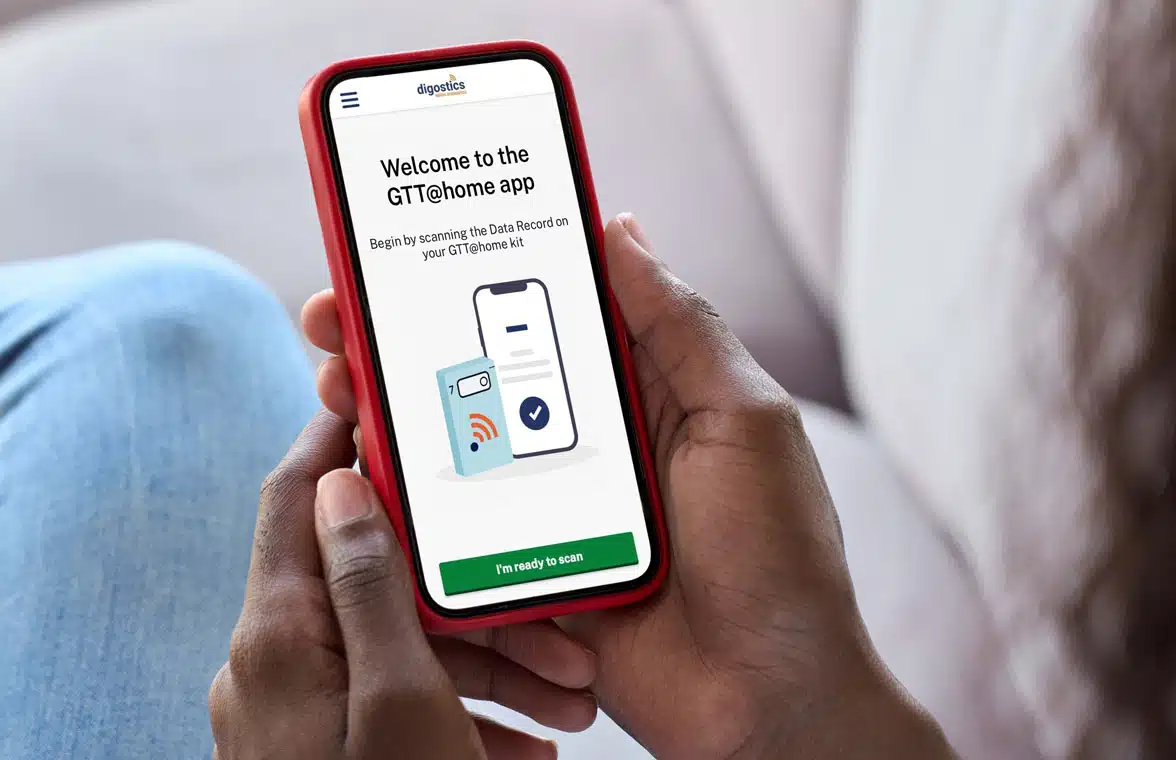
The University Hospital Southampton NHS Foundation Trust in the UK is to trial a solution that allows pregnant women to quickly and easily report the results of a home test for diabetes to antenatal care providers by scanning the testing device with their NFC smartphone.
UHS is the first hospital in the world to trial accelerating the diabetes testing process by enabling expectant mothers in the care of its maternity services to screen themselves for gestational diabetes mellitus at home and submit their results via a mobile app rather than having to visit a physical clinic.
“The GTT@home service is based on a simple-to-use home test kit containing the novel GTT@home test device, a glucose drink and finger prickers. The test kit is mailed to the expectant mother at the time the test is due,” UHS explains.
“Easy to follow instructions, online guidance and telephone support ensure that the test can be completed conveniently at home on the day of choice.
“When completed, the user can immediately send their test data to their care team by scanning a snap-off fob attached to the test device with a smartphone using the GTT@home mobile app.
“This is enabled by the near field communication (NFC) functionality within the device, with the process akin to making a contactless mobile payment in a store.
“Alternatively, the patient can post the fob in the supplied prepaid envelope for processing.
“The GTT@home testing service also includes a software platform that enables the antenatal care team to schedule tests and view patient results.
“Key aims of the collaboration include improving healthcare equity of access and reducing health inequalities by eliminating barriers associated with in-clinic testing that can be felt more acutely within specific at-risk patient cohorts.”
Next: Visit the NFCW Expo to find new suppliers and solutions